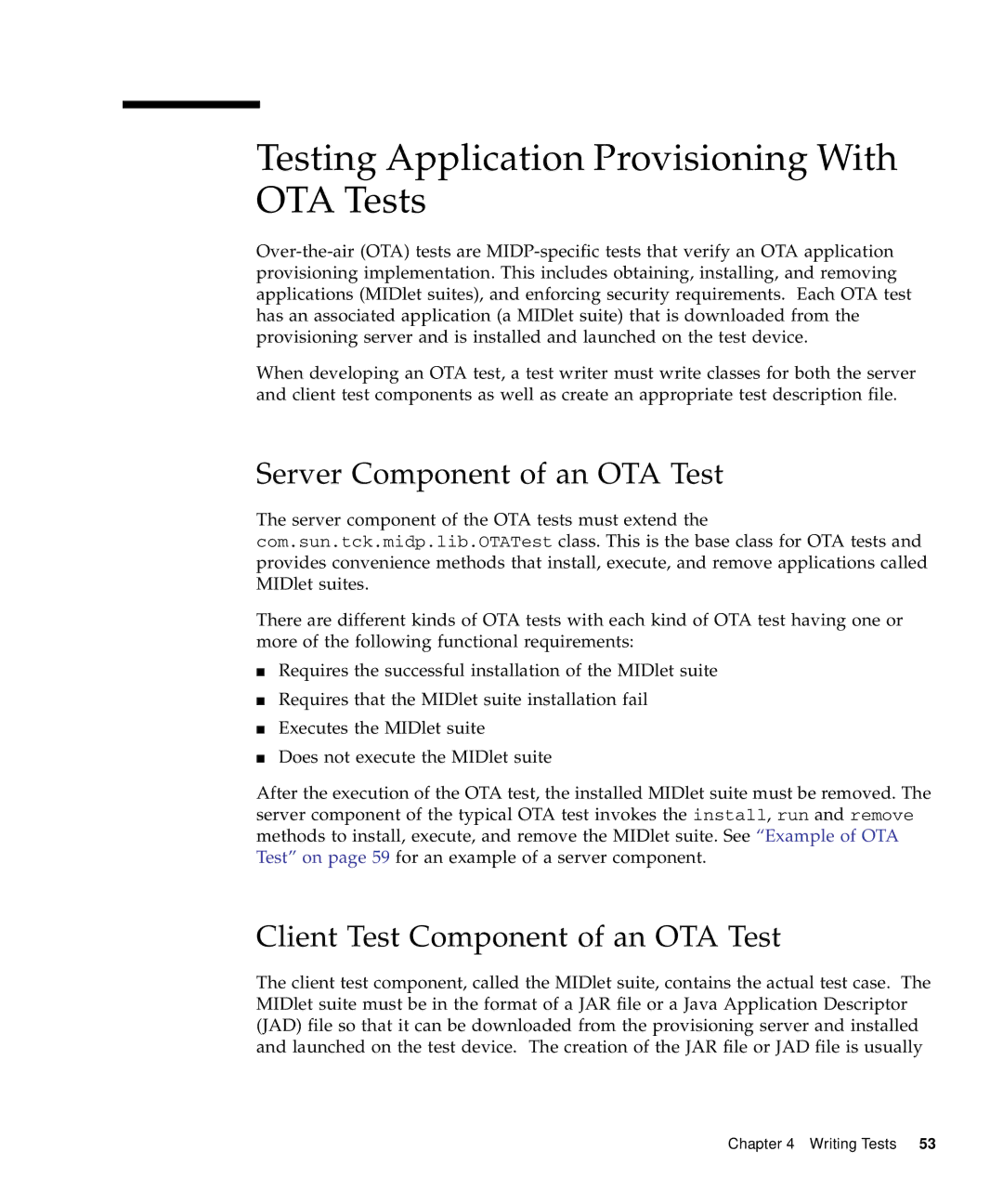Testing Application Provisioning With OTA Tests
When developing an OTA test, a test writer must write classes for both the server and client test components as well as create an appropriate test description file.
Server Component of an OTA Test
The server component of the OTA tests must extend the com.sun.tck.midp.lib.OTATest class. This is the base class for OTA tests and provides convenience methods that install, execute, and remove applications called MIDlet suites.
There are different kinds of OTA tests with each kind of OTA test having one or more of the following functional requirements:
■Requires the successful installation of the MIDlet suite
■Requires that the MIDlet suite installation fail
■Executes the MIDlet suite
■Does not execute the MIDlet suite
After the execution of the OTA test, the installed MIDlet suite must be removed. The server component of the typical OTA test invokes the install, run and remove methods to install, execute, and remove the MIDlet suite. See “Example of OTA Test” on page 59 for an example of a server component.
Client Test Component of an OTA Test
The client test component, called the MIDlet suite, contains the actual test case. The MIDlet suite must be in the format of a JAR file or a Java Application Descriptor (JAD) file so that it can be downloaded from the provisioning server and installed and launched on the test device. The creation of the JAR file or JAD file is usually
Chapter 4 Writing Tests 53
